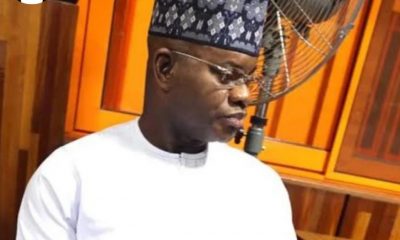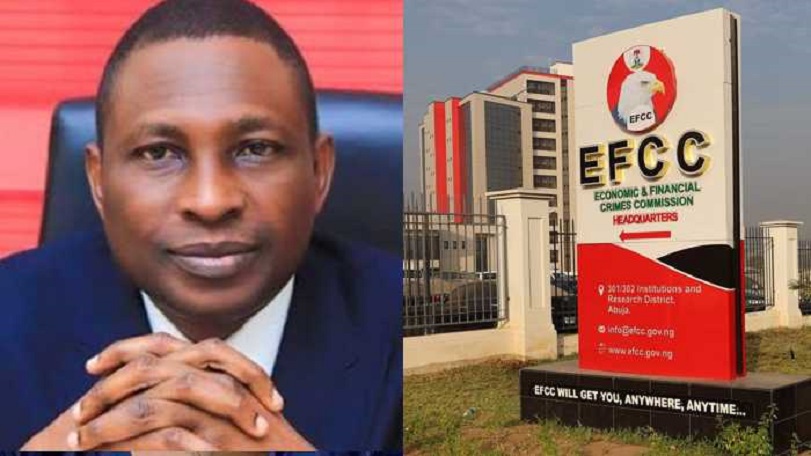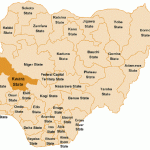General
EFCC Laments Crypto Funding of Fraud Syndicates’ Cells

By Adedapo Adesanya
The Chairman of the Economic and Financial Crimes Commission (EFCC), Mr Ola Olukoyede, says organised foreign fraud syndicates are establishing cells in Nigerian cities and recruiting youths into serious organised cybercrimes, made easy by cryptocurrencies.
This was disclosed by the anti-graft agency in a statement signed by its spokesperson, Mr Dele Oyewale, on Thursday in Abuja.
Mr Olukoyede said this while receiving participants of the Executive Intelligence Management Course (EIMC) 18 of the National Institute for Security Studies (NISS) on Wednesday in Abuja.
He said the team was led by the institute’s Director of Studies, Mr Hyginus Ngele, to the commission.
Mr Olukoyede expressed surprise at how bandits and insurgents were able to sustain their activities in the country over the years.
He noted with concern, the rate of flow of small arms and light weapons across the borders and the involvement of non-state actors in the illegal exploitation of minerals in parts of the country.
The EFCC boss said all these activities compounded the threats in the security landscape.
“Another dimension that is not given attention is the discovery, recently, that organised foreign fraud syndicates are establishing cells in Nigerian cities.
”They are recruiting young Nigerians into serious organised cybercrimes, including cryptocurrency fraud.
“By the virtue of EFCC’s recent discovery, we are beginning to see the likelihood, the propensity that a lot of these people are into illegal importation of arms into the country using cryptocurrency as means of payment.”
According to him, this is an area that must interest all and sundry.
“In the special operations we carried out in Lagos recently, we arrested 194 foreigners in the heart of Victoria Island.
”They comprised Chinese, Filipinos, Eastern Europeans, Tunisians and among others in one building at a time. You can imagine what these guys are doing, 194 of them.
“Some of them don’t even have valid visas and most of the financial activities they carried out were through cryptocurrency,” he said.
He said the commission also discovered that some of the foreigners arrested were already ex-convicts in their countries.
“Some of them have been convicted and escaped from their countries and found safe haven in Africa, not only Nigeria.
“We discovered that they are also developing cells in some other African countries by virtue of the investigation we are carrying out,” he said.
The EFCC boss called for spirited efforts at both national and continental levels to combat the menace of internet fraud.
He stressed that the money laundering and national security dimension of the presence of foreign organised crime groups demanded close scrutiny.
“All security, intelligence and law enforcement organisations in Nigeria and indeed Africa, must close ranks in dealing with this challenge,” he said.
On his part, the NISS commandant, Mr Joseph Odama, who spoke through Mr Ngele, praised Mr Olukoyede’s leadership of the EFCC for the commission’s “remarkable achievements in combating corruption, money laundering, and other financial crimes.”
He noted that the achievements had not only strengthened Nigeria’s integrity but also served as a model for other nations in Africa and beyond.
He said the EFCC, under Mr Olukoyede, had been at the forefront of investigating and prosecuting financial crimes, including those involving non-state actors.
“Your commission’s exploratory activities have uncovered the intricate networks through which some NGOs and other entities channel funds to support hostile non-state actors, thereby, fueling instability in various parts of the country and the African continent.
“We recognise the critical role the EFCC plays in disrupting these networks and ensuring accountability.
“In light of this, we are particularly interested in hearing your insights on how your commission navigates the complexities of investigating and prosecuting cases involving non-state actors.
“We also seek your contributions on how Nigeria and other African nations can strengthen legal and institutional frameworks to address the challenges posed by these actors while promoting transparency and accountability in their operations.”
General
FG Insists Prepaid Meter is Free, Warns Nigerians Against Payment
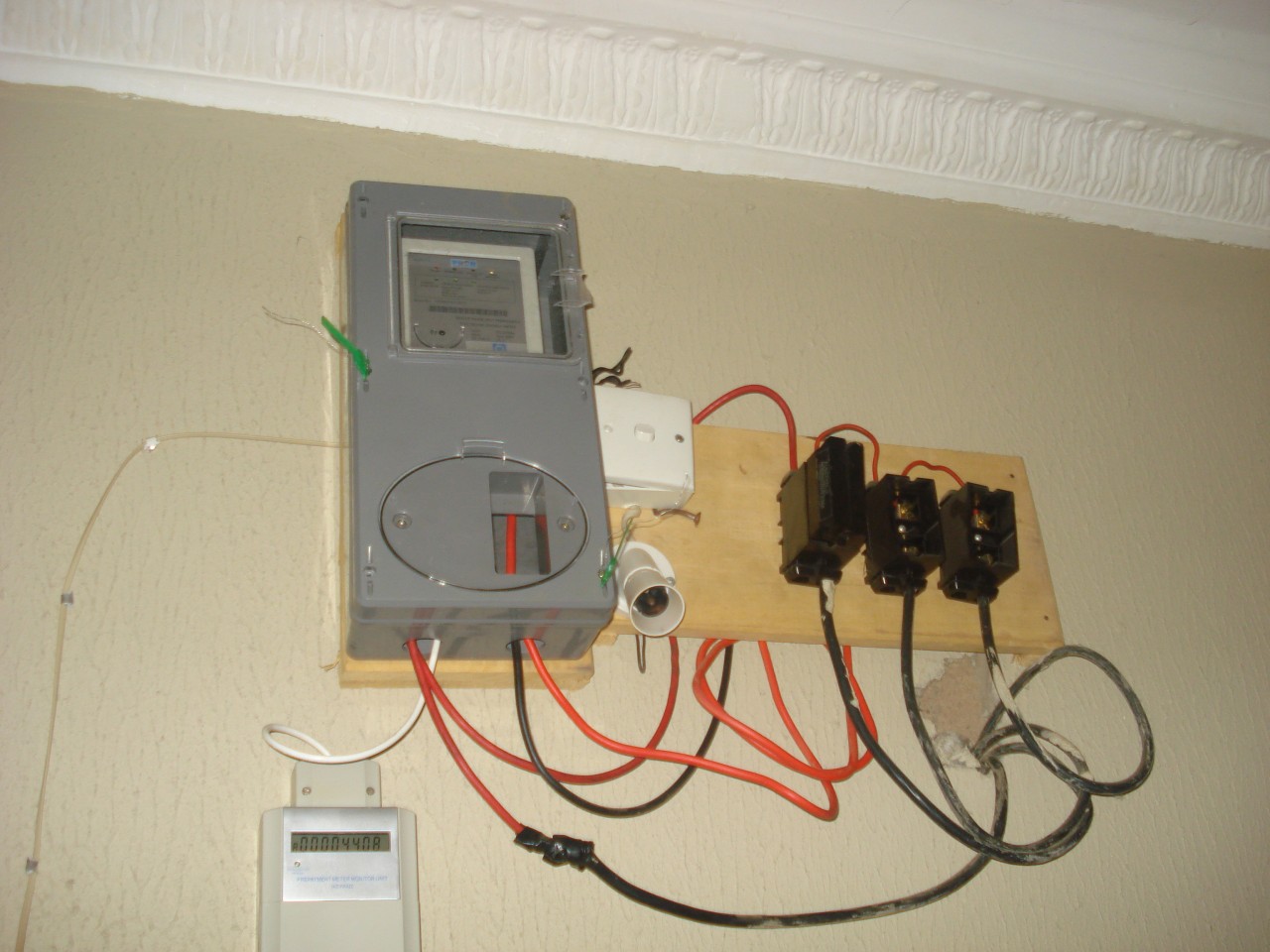
By Adedapo Adesanya
The federal government has reaffirmed that electricity meters being deployed under the Distribution Sector Recovery Programme (DISREP) are free for customers, warning Nigerians not to pay any money for meter supply or installation.
The Director General of the Bureau of Public Enterprises (BPE), Mr Ayodeji Ariyo Gbeleyi, stated this in Abuja at a joint media briefing on DISREP with the managing directors of Nigeria’s 11 Electricity Distribution Companies (DisCos). DISREP is financed through a $500 million World Bank facility.
The DG said the concessional nature of the funding, which comes at single-digit interest rates, makes it more sustainable than commercial borrowing and supports long-term stability in the power sector.
Under the DISREP IPF, 3.2 million smart meters are being procured and installed nationwide over four years through competitive international and local bidding. According to him, close to 700,000 meters have already been delivered, while about 200,000 have been installed across different DisCos.
The DG said, “With DISREP and other Federal Government interventions, the journey to power sector reliability is underway. DISREP is not just a short-term intervention, but part of a broader and coordinated plan of the Renewed Hope Agenda of President Bola Ahmed Tinubu, GCFR, towards building a financially viable and service-oriented electricity market
“Nigerians deserve a power sector that works, one that delivers reliable electricity, protects consumers, ensures value for money, and supports economic growth.
“Together, we shall achieve that! The supply and installation of these meters for customers is free.
It was also disclosed that the government had already paid the contractors to supply and install the meters. DISREP is integrated with other metering initiatives, including the Presidential Metering Initiative and the Meter Acquisition Fund, to accelerate the closing of Nigeria’s metering gap.
On his part, the Managing Director of Abuja Electricity Distribution Company, Mr Chijioke Okwuokenye, warned customers not to pay for meters.
“These meters are to be deployed and installed freely. Anybody asking you to bring money should be reported,” he said.
MD of Eko Electricity Distribution Company (Eko Disco), Mrs Wola Joseph-Condotti, said the company is working closely with the authorities to weed out bad eggs who extort money from customers for meter procurement and installation.
The programme offers significant benefits to consumers, including the removal of upfront meter purchase and installation costs, accurate billing, the elimination of arbitrary estimated billing, improved service accountability by DisCos, better transparency and dispute resolution, and long-term improvements in supply reliability as the sector becomes more financially viable.
For DisCos, Mr Gbeleyi said DISREP provides access to concessional World Bank financing for metering and network upgrades, reduces Aggregate Technical, Commercial and Collection (ATC&C) losses, improves liquidity and revenue assurance, and strengthens operational performance for long-term investment.
He disclosed that $250 million of the facility is dedicated to Investment Project Financing, which supports bulk procurement of the 3.2 million smart meters, deployment of Meter Data Management Systems, and provision of technical assistance and capacity-building programmes to strengthen DisCos’ operations and processes.
Describing DISREP as a landmark transaction, Mr Gbeleyi said it is the first initiative of its kind in which the government, beyond investing in distribution network infrastructure, is deploying meters at scale to bridge the country’s metering gap. He cited official figures showing that Nigeria currently has about 5.66 million unmetered electricity customers.
“The plan is to quickly close that gap. These meters are for everybody. They are for Nigerians. Priority is on unmetered customers,” he said.
He clarified that while the policy targets unmetered customers, DisCos have been allowed to deploy up to 20 per cent of the meters to replace faulty or technologically obsolete units, following feedback from the field.
General
NSC Revamps PSSP to Solve Complaints, Boost Ease of Doing Business in Ports
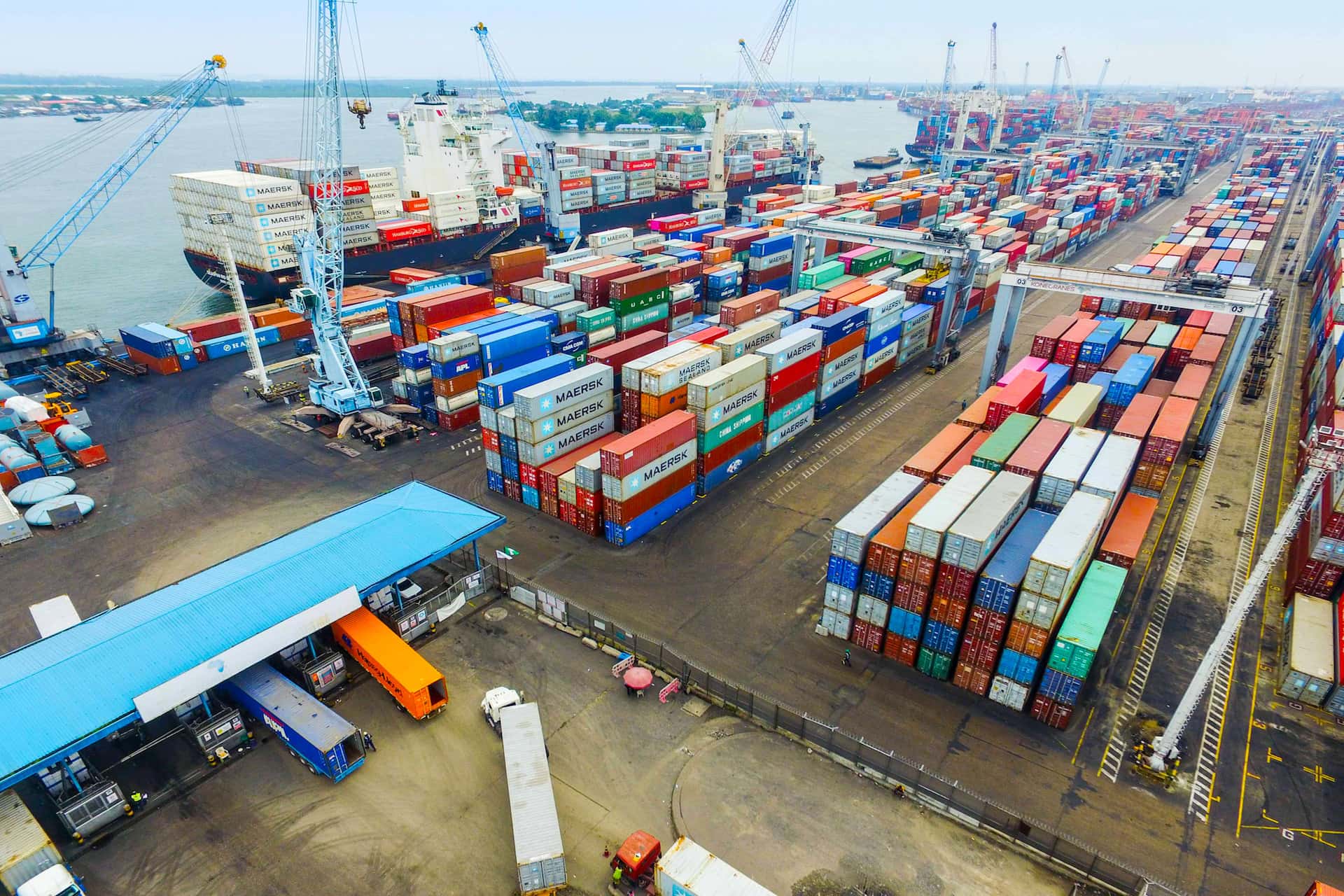
By Adedapo Adesanya
The Nigerian Shippers’ Council (NSC) has successfully concluded the review of the Port Service Support Portal (PSSP) application, which is aimed at ensuring seamless handling and efficient resolution of stakeholders’ commercial disputes across the maritime sector.
The Head of NSC-ICT, Mr Benjamin Ivwigheghweta, and his team; the Head of the Complaints Unit, Mr Bashir Ambi and his team; as well as consultants from BrandOne, all collaborated to complete the platform’s final implementation stage.
Mr Ivwigheghweta expressed satisfaction with the successful integration of the revamped PSSP for streamlined dispute resolution. He encouraged the team to fully engage with the new system and to ask questions where necessary, ensuring that every member is well equipped to meet stakeholder needs with precision and efficiency.
On his part, Mr Ambi applauded the deployment of the PSSP as a tool for accelerating grievance resolution, adding that the platform would significantly strengthen the council’s dispute resolution framework by promoting transparency, boosting stakeholder confidence, and generating reliable, data-driven records to support national economic growth.
He further commended the ICT team for its unwavering support-particularly in ensuring extended network availability to support the Unit’s after-hours operations.
Describing the PSSP as a critical modern upgrade for dispute resolution, Mr Ambi revealed that the Council’s operations are now about 90 percent digital. “We rely heavily on electronic platforms to serve our stakeholders,” he said, adding that the ICT Unit has remained the backbone of these efforts by providing consistent support, even over weekends, to ensure uninterrupted online service delivery.
This digital-first approach, he noted, keeps the NSC at the forefront of maritime efficiency.
Following a productive three-hour technical review and interactive question and answer session, the PSSP is now in its final phase.
The next steps include the configuration of individual user access by the ICT Unit and a live demonstration of the platform to Management. Upon completion of these tasks, the council will be ready to go live-ushering in a new era of digital efficiency in port service delivery.
The Port Service Support Portal was officially launched by the former Vice President, Mr Yemi Osinbajo, in June 2016 in Abuja. The launch was held alongside the unveiling of the Port Harmonized Standard Operating Procedures (SOPs). The portal was designed as an online, real-time platform to enhance service delivery, address stakeholder complaints, and curb corruption at Nigerian ports.
General
Tinubu Deploys Army to Kwara, Condemns Terrorist Attack
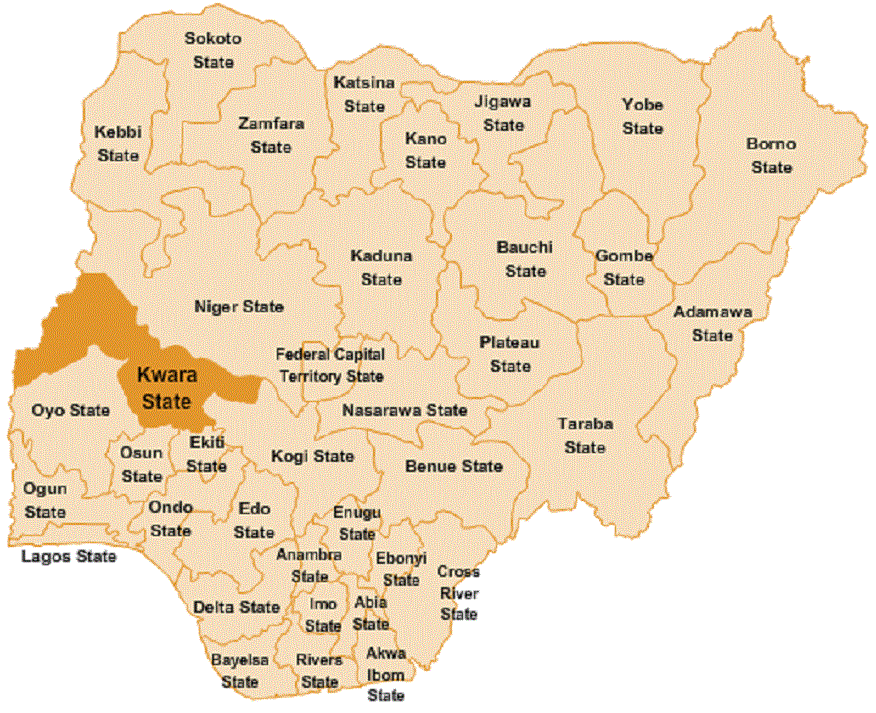
By Adedapo Adesanya
President Bola Tinubu has deployed an army battalion to Kaiama district in Kwara State after suspected jihadist fighters killed about 170 people in an overnight attack on Tuesday.
The terrorists stormed Woro and Nuku communities in Kaiama Local Council, according to Kwara State lawmaker, Mr Saidu Ahmed.
The violence highlights fears that jihadist factions prevalent in Northern Nigeria are pushing south along the Niger-Kwara axis toward the Kainji forest.
According to a statement from the Presidency, the new military command will spearhead Operation Savannah Shield to checkmate the barbaric terrorists and protect defenceless communities.
He condemned the attack as “cowardly and barbaric,” saying the gunmen targeted villagers who had rejected attempts to impose extremist rule.
“It is commendable that community members, even though Muslims, refused to be conscripted into a belief that promotes violence over peace,” President Tinubu said in the statement.
The President urged collaboration between federal and state agencies to provide succour to members of the community and ensure that those who committed the atrocities do not go scot-free.
President Tinubu prayed for the repose of the souls of the deceased and condoled with those who lost family members as well as the people and government of Kwara State.
Similarly, suspected bandits stormed Doma community in Tafoki Ward, Katsina State, on Tuesday afternoon, killing several residents, injuring many others and setting vehicles and houses ablaze.
There were conflicting figures over the casualty toll, with police putting the number of deaths at 13, while the executive chairman of Faskari Local Council estimated more than 20.
-

 Feature/OPED6 years ago
Feature/OPED6 years agoDavos was Different this year
-
Travel/Tourism9 years ago
Lagos Seals Western Lodge Hotel In Ikorodu
-

 Showbiz3 years ago
Showbiz3 years agoEstranged Lover Releases Videos of Empress Njamah Bathing
-

 Banking8 years ago
Banking8 years agoSort Codes of GTBank Branches in Nigeria
-

 Economy3 years ago
Economy3 years agoSubsidy Removal: CNG at N130 Per Litre Cheaper Than Petrol—IPMAN
-

 Banking3 years ago
Banking3 years agoSort Codes of UBA Branches in Nigeria
-

 Banking3 years ago
Banking3 years agoFirst Bank Announces Planned Downtime
-

 Sports3 years ago
Sports3 years agoHighest Paid Nigerian Footballer – How Much Do Nigerian Footballers Earn





